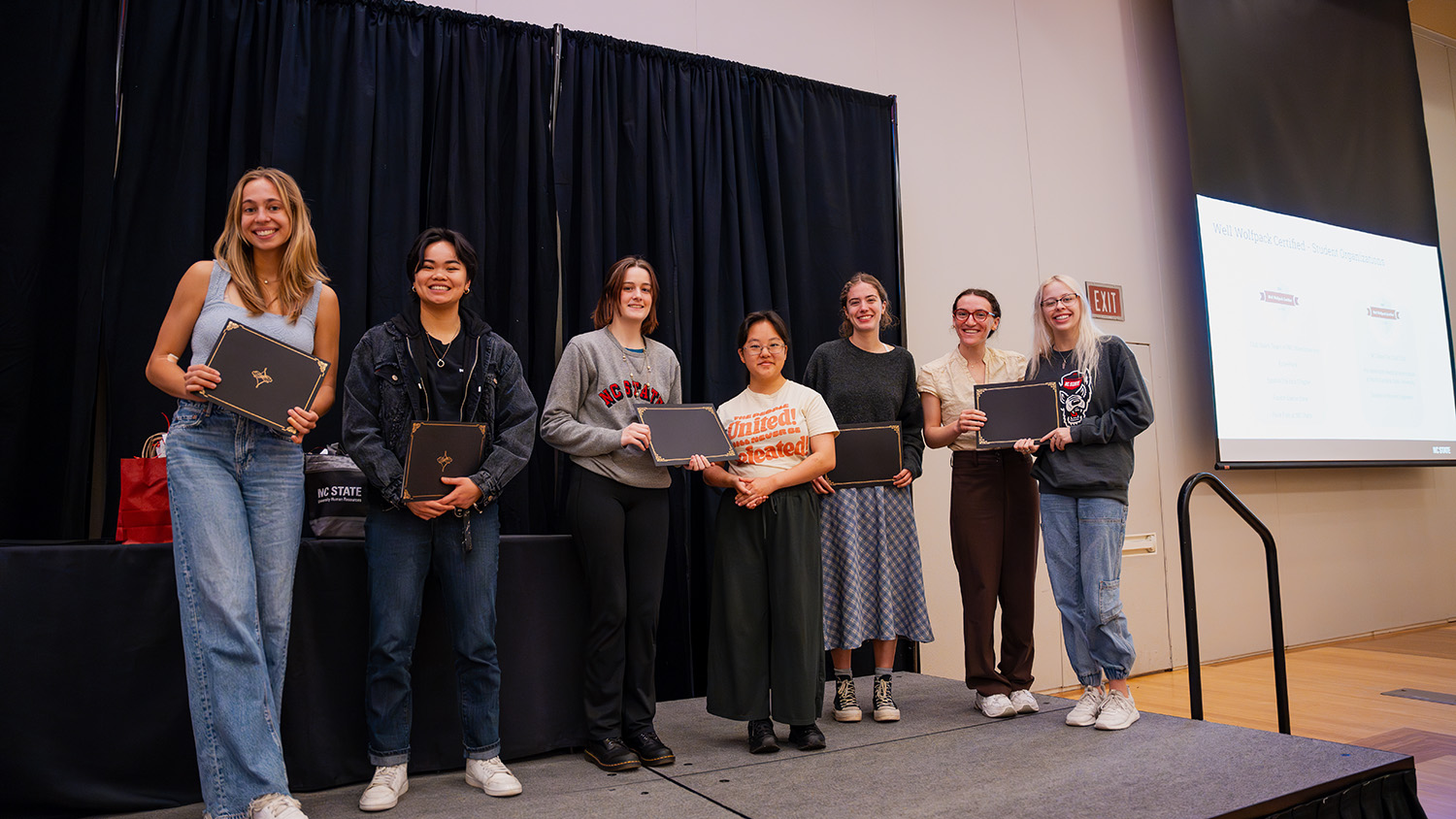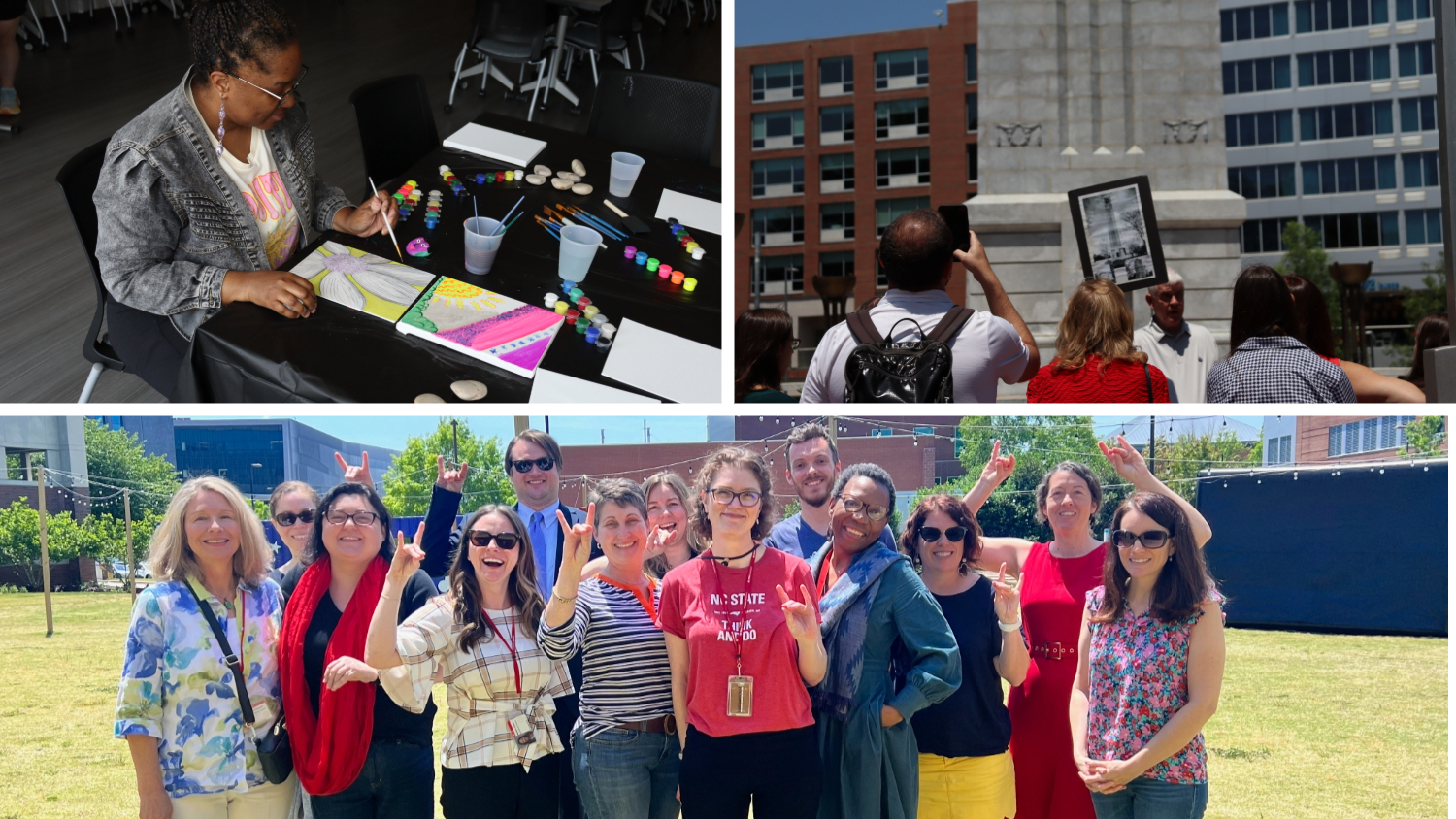AVC Corner: Women’s History Month Is a Time To Celebrate and Take Action
Colleagues,
I want to use my letter this month to call attention to two things: Women’s History Month and how COVID-19 has affected women in the workplace.
A story in this edition of Howl You Know acknowledges the importance of this month by highlighting some of the phenomenal women who work at NC State. I encourage you to read about them and their extraordinary work.
As a nation, we have been celebrating the contributions and achievements of women in March since 1982. That year, we honored women during the first Women’s History Week. In 1987, Congress designated March as Women’s History Month.
As I consider the significance of this month, a long list of inspiring women comes to mind. They include:
- Astronauts Christina Koch and Jessica Meir, who performed the first all-female spacewalk in 2019. Koch, an NC State alumna, also set a record for the longest single spaceflight by a woman.
- Sandra Day O’Connor, the first woman to serve on the U.S. Supreme Court.
- Kamala Harris, the first female U.S. vice president.
- Rosa Parks, the civil rights icon who refused to give up a seat on a bus to a white man in Montgomery, Alabama, in 1955.
- Jackie Joyner-Kersee, who is considered one of the greatest track and field athletes of all time. Joyner-Kersee won six Olympic medals — three gold, two bronze and one silver — during her career.
Although women have made many strides over the years, thanks to the courage and resiliency of these leaders and so many others, the COVID-19 pandemic is threatening some of the progress women have made in the workplace. A recent Fortune magazine story examined how the pandemic is affecting women and how to help them. That story cited the following:
- Female participation in the workplace is down to 57%, the lowest level since 1988, according to the National Law Center.
- One in four women is considering leaving the workplace or downshifting their careers due to COVID-19, according to a 2020 Women in the Workplace study.
- Before COVID-19, only one in five direct reports to a CEO at a corporation was a woman and only one in 30 was a woman of color, according to the workplace study. The Fortune story warns this trend and others could worsen if we don’t address those caused by COVID-19.
There is no doubt that this pandemic has been particularly tough on women. Millions have left their jobs or changed careers for reasons related to COVID-19, including increased child care responsibilities caused by daycare centers closing and children attending school virtually. So what can we do to stop this hemorrhaging of women from the workforce? Here are some of the ways that the Fortune story suggest addressing this alarming trend:
- Expanding benefits and child care assistance programs.
- Providing educational support and training to women without high school and college degrees to enhance and develop their job skills.
- Promoting and expanding the use of flexible work arrangements.
University Human Resources and the Office for Institutional Equity and Diversity will continue to address the diverse needs of women at NC State, including equity challenges and compensation. I believe some of the initiatives UHR and university partners are currently working on will greatly benefit women at NC State. We are:
- Developing a universitywide flexible work arrangement policy and companion resources.
- Launching an Employee Emergency Loan program. This program is scheduled to begin April 2.
- Making enhancements to the university’s child care program, such as adding additional daycare providers.
- Refreshing the Wolfpack Wellness program.
We also have refreshed our employee recognition and appreciation program at NC State. That is another program I think will benefit employees at NC State, including women.
When Women’s History Month 2022 rolls around, hopefully we will be discussing how we worked to resolve this issue.
Best regards,
Marie Williams
Associate Vice Chancellor for Human Resources
- Categories:


